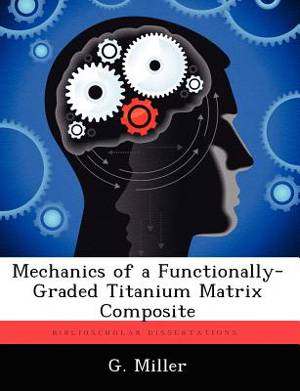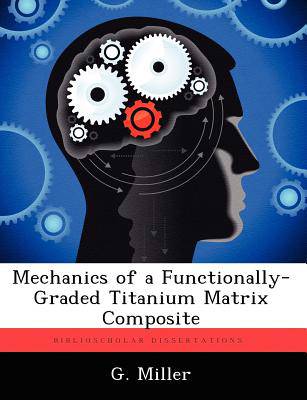
- Afhalen na 1 uur in een winkel met voorraad
- Gratis thuislevering in België vanaf € 30
- Ruim aanbod met 7 miljoen producten
- Afhalen na 1 uur in een winkel met voorraad
- Gratis thuislevering in België vanaf € 30
- Ruim aanbod met 7 miljoen producten
Zoeken
€ 54,45
+ 108 punten
Omschrijving
Functionally-graded Titanium Matrix Composites (F/G TMCs) combine the ideal properties of titanium matrix composites with the more practical machining qualities of monolithic (unreinforced) alloy. This material shows great promise in application to aerospace structural components - even in parts whose design requirements have defied the use of composite materials in the past. Successful implementation of such a material would lead to enhanced aircraft performance. However, the basic properties of a functionally-graded titanium matrix composite need to be investigated. The composite/alloy transition region, or joint area, may be less strong than its constituents and therefore determine the overall performance of the material. Therefore, this work studied the properties (modulus of elasticity, failure strength) and mechanical behavior (fatigue and deformation failure mechanisms) of the joint area as the first step in further testing and future evaluation of this material. The scope of this effort involved tension and fatigue testing. The results of this study found that the transition region was more robust than expected: the joint area shows a combination of the properties for the parent materials and is nearly as strong as the unreinforced alloy. The deformation mechanism of the joint area was determined to be plasticity, and not damage. As a result, the monolithic alloy proved to be the source of failure in fatigue loading. This indicates that strain values in the monolithic alloy play a key role in the fatigue life of the entire material. These findings encourage further evaluation of functionally-graded titanium matrix composites.
Specificaties
Betrokkenen
- Auteur(s):
- Uitgeverij:
Inhoud
- Aantal bladzijden:
- 112
- Taal:
- Engels
Eigenschappen
- Productcode (EAN):
- 9781249578451
- Verschijningsdatum:
- 2/10/2012
- Uitvoering:
- Paperback
- Formaat:
- Trade paperback (VS)
- Afmetingen:
- 189 mm x 246 mm
- Gewicht:
- 213 g

Alleen bij Standaard Boekhandel
+ 108 punten op je klantenkaart van Standaard Boekhandel
Beoordelingen
We publiceren alleen reviews die voldoen aan de voorwaarden voor reviews. Bekijk onze voorwaarden voor reviews.











